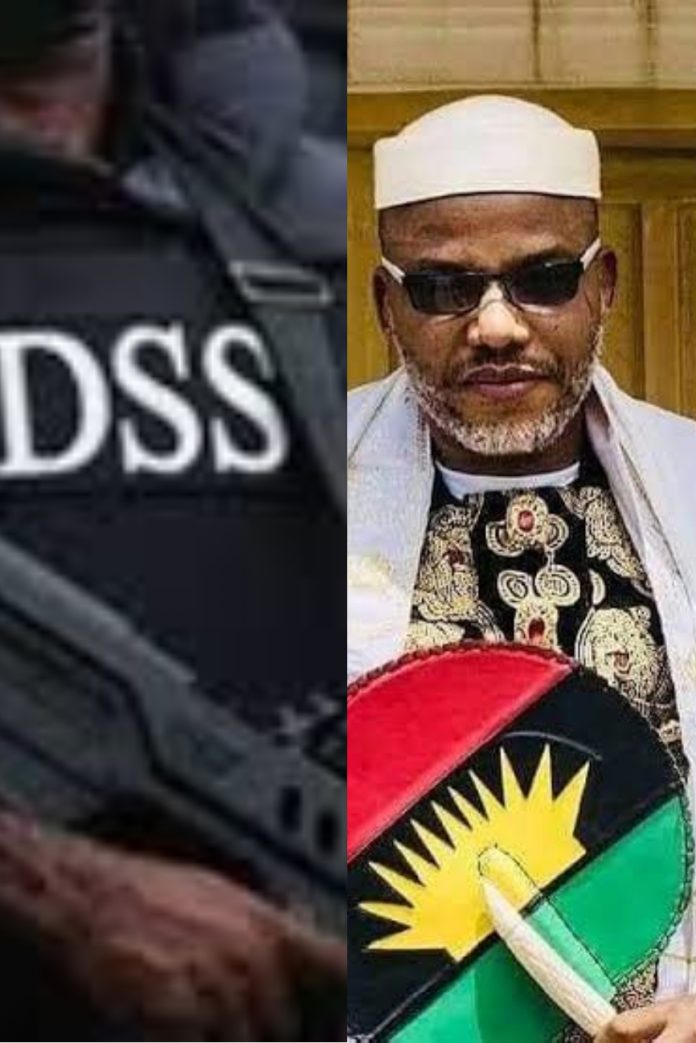DSS ACCUSES NNAMDI KANU OF MASTERMINDING VIOLENT ATTACKS, INCLUDING COURT ARSON, POLICE BEHEADINGS
The Department of State Services (DSS) on Thursday May 8th leveled grave allegations against Nnamdi Kanu, the detained leader of the Indigenous People of Biafra (IPOB), accusing him of orchestrating a series of violent attacks across Nigeria, including the arson of a Lagos courthouse and the gruesome beheadings of security personnel.
Testifying before the Federal High Court in Abuja, a DSS operative identified only as “BBB” told the court that Kanu, through his inflammatory broadcasts on Radio Biafra, incited violent actions by his followers. Led in evidence by prosecution counsel Adegboyega Awomolo (SAN), BBB said that intelligence investigations linked Kanu directly to the founding of IPOB and its armed wing, the Eastern Security Network (ESN), which he allegedly used to wage a campaign of terror under the guise of achieving Biafra’s secession.
“He ordered the burning of a Lagos High Court and government buses. He called for the beheading of police and army officers,” the operative testified. BBB further alleged that Kanu’s directives were behind the killing of numerous individuals, including the May 2022 assassination of Ahmed Gulak, a political aide to former President Goodluck Jonathan, and the beheading of an army couple, Gloria Matthew and Linus Musa.
Kanu’s voice, the witness claimed, was confirmed in several recordings presented by the prosecution. These audio clips allegedly contain calls for attacks on government installations, enforcement of sit-at-home orders, and threats against civilians and security forces who disobeyed IPOB’s directives.
One particularly harrowing claim was that eyewitnesses heard Gulak’s killers invoke Kanu’s name moments before opening fire on him. The DSS also submitted video footage of attacks on police stations and beheadings of officers, though these were challenged by the defence.
During cross-examination, Kanu firmly denied authorizing killings. He reiterated IPOB’s stance as a non-violent movement pursuing self-determination through a referendum, claiming his sit-at-home orders were not meant to provoke violence but were symbolic acts of resistance. “It’s like when you tell your child ‘I will kill you’ — you don’t really mean it,” he said.
Kanu also defended the formation of the ESN, stating it was created solely to defend southeastern communities from deadly attacks by armed herders, citing massacres in places like Nimbo in Enugu State. He maintained that until the military stormed his residence in 2017 — killing 28 people, according to him — he had been exploring a political resolution with regional elders such as the late Prof. Ben Nwabueze.
His lawyer, Paul Erokoro (SAN), objected to the admissibility of the video evidence presented and requested more time for consultations.
Justice James Omotosho adjourned the proceedings to May 14, 21, and 22 for continuation of trial.



